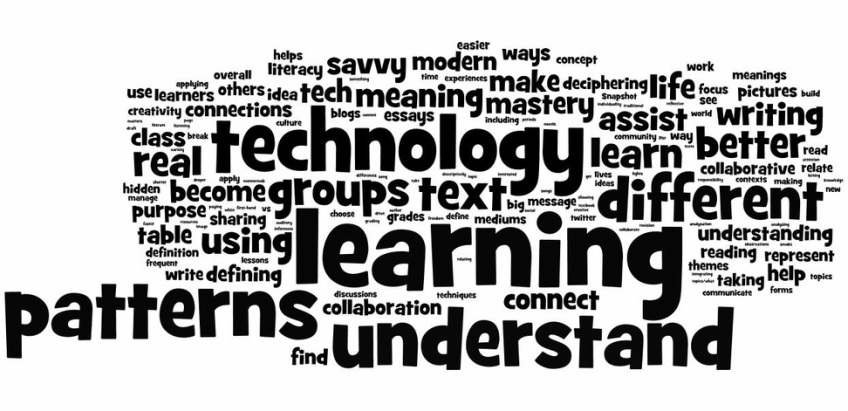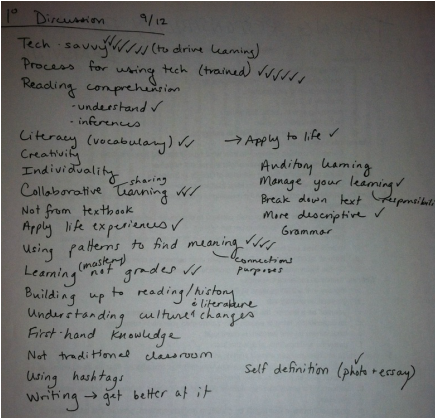It's new for us, for that matter.
It's not the Teacher Lectures and Student Studies the Textbook paradigm. And our students really struggled with the transition.
So I decided to ask them what they were learning in my class. We've been working on these three playlists.
I wasn't expecting much because it really seems like they weren't "getting it" and making the right connections.
Here were the results for the topic:
What are you learning in this class? What do you think we want you to know/be able to do?
Wordle (all classes combined)
I'm really proud of them.
They ARE learning! :-)




 RSS Feed
RSS Feed
